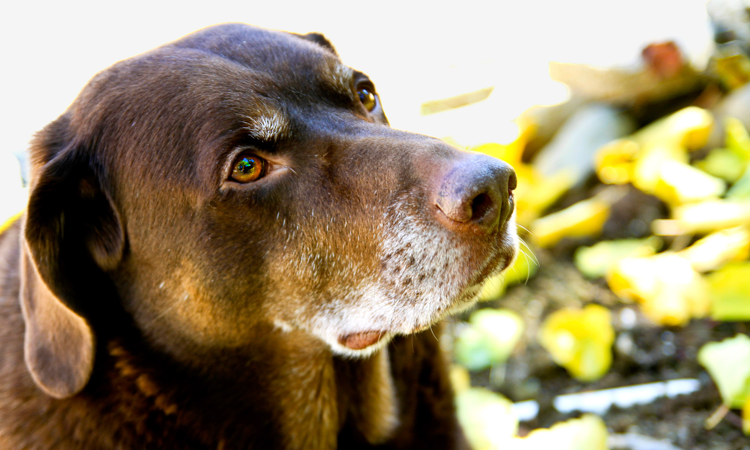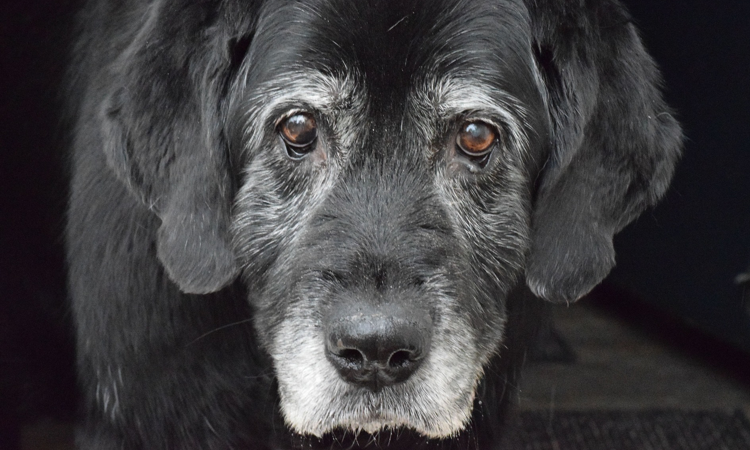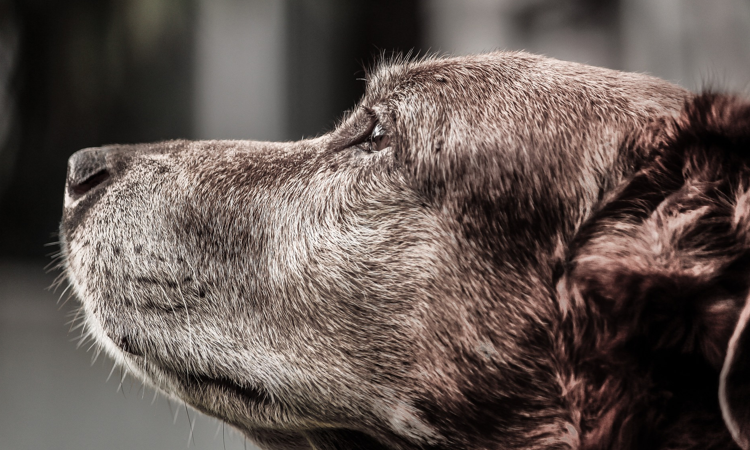Looking after an older dog often requires more consideration than with a strong and sprightly pooch in the prime of their life. Older dogs become slower, more tired and you’ll notice changes in their daily patterns. These are some of the things you can expect, but just like with ageing humans, there is no set formula for how your dog will adapt to old age.
Some owners report their dog becoming slower, others tell stories of their pooch having a second lease of life. Some old dogs may become grumpy with people and dogs, others get more mellow and want more fuss and attention.
Adapting to support your senior dog will help them to live out their life happily and comfortably. They’re still the same pet after all, just in a slightly creakier body.
Here’s how you can take care of them properly from every angle.
When does old age begin for your dog?

This is dependent on breed. The Kennel Club provides this recommendation which may help guide you to when your dog is reaching seniority and when allowances should be made:
Small dog breeds: 8-12+ years
Medium dog breeds: 7 years
Large dog breeds: 5 years
Feeding your senior dog
The older a dog is, the more prone they can be to putting on weight. Most older dogs slow down slightly and may develop a more sedentary lifestyle. For this reason, it’s important to check your dog’s weight regularly and keep an eye on how much their eating. You should be able to see a difference in size between their waist and back and you should be able to feel their ribs when pressing lightly on their chest.
If your dog is clearly overweight, try reducing their diet and increasing the amount of daily exercise if they can manage it. Little and often may be the best approach, rather than those long rambling walks that you might’ve been used to a few years ago.
If your dog loses a lot of weight quickly, this can be a sign of illness and will need to be investigated by your vet.
There is plenty of information across the internet around different supplements and diets for an ageing dog however, this should always be checked with your vet. All dogs are different and what may work for one may not necessarily work for another. Any diet changes should also be made gradually to reduce the chance of your senior dog getting an upset tummy.
Health care for your senior dog

As your dog gets older they may need more veterinary care to keep them happy and healthy.
Many older dogs experience teeth and gum rot which can require anesthetic and tooth extraction. This may sound pretty uncomfortable but is often a better alternative to the pain caused by bad teeth and gums and will make it much easier for your dog to eat well. Your vet will always be able to advise at what age and condition it is safe to put your older dog under anaesthetic until and can suggest other alternatives if this isn’t recommended.
Just because your dog is older (and maybe wiser!) doesn’t mean that your regular routines to help keep their coat, skin and gut healthy can stop. Older dogs still need to have parasitic control medicines, even if they are not going out as regularly. They will also still need grooming to keep their coat, ears and paws in check.
Adapting your home for your senior dog

As dogs become older they will want to rest much more. This makes a comfortable living environment essential. Ensure your dog has a cosy bed positioned with the family yet away from any draughts or hives of activity.
As your dog becomes older they’ll be less excitable and might be more interested in sleeping than being involved in every activity. Give them space to relax and respect their rest times like you would with your elderly human relatives!
Older dogs may not also be as agile. Within the home, stairs or ledges may become a mountain that is just too high to climb. Help your dog adjust to where they can go easily, moving their bed if required and helping them up or down the stairs when necessary.
Deterioration in eyesight and hearing may also make your dog more easily startled and less likely to respond to commands. Be patient with them and make allowances if they aren’t as quick to follow your instructions as you might like.
Changes in your senior dog
It’s natural to worry about our dogs’ health as they get older and for that reason it can be difficult to differentiate between a dog who is just old and one who needs veterinary care. As a guide, you should see your vet if your dog is showing any of the below behaviours:
- Refusing to eat
- Drinking much more than usual
- Losing weight at a rapid pace despite eating
- Difficulty walking
- A cough
- Being disorientated at home
- Is suddenly having accidents in the home
Do you have a much-loved older dog? Share your oldie doggy pictures and stories with the DogBuddy community on Facebook or Twitter.